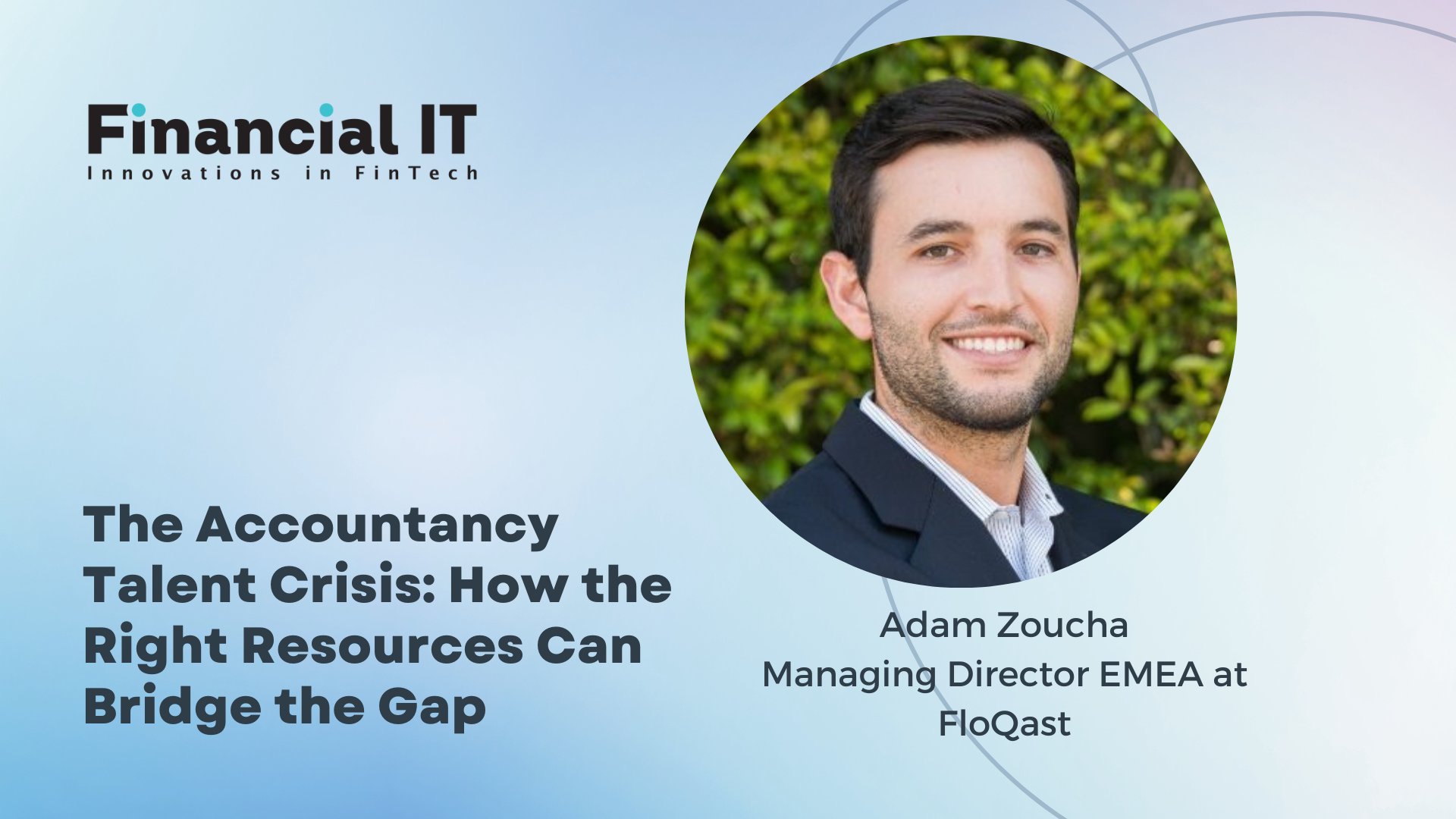The Accountancy Talent Crisis: How the Right Resources Can Bridge the Gap

- Adam Zoucha, Managing Director EMEA at FloQast
- 16.08.2023 03:15 pm #accounting
The accounting profession, once considered to be a safe bet by the career professional, is now facing an escalating talent crisis. Fewer graduates are signing up for the profession and those already working as accountants are increasingly signalling their intention to leave.
FloQast’s recent research: Controller’s Guidebook: The Great Recalibration – The Role of Technology in Retaining and Recruiting Accountants revealed more than half of accountants were not confident they would stay in their current role, with a majority of that group unsure if they would stay in the industry at all.
Highlighting just how severe the problem has become, recently a number of US organisations cited material weakness in their financial statement, due at least in part to a lack of accounting staff.
There is no doubt accounting can be a stressful job, and quite often that stress isn’t down to the demands of the role, but to avoidable inefficiency. For those chasing receipts and invoices each month to close the books on time, it’s not surprising that frustrations will surface, leaving many work weary and in search of more inspiring career paths.
Accountants are demanding a work experience that leaves them feeling both valued and fulfilled. For many, though, the change they need to see doesn’t appear to be coming down the tracks fast enough, leading them to move on. Many are leaving the profession altogether, which means the competition for trained staff is fierce, and the situation for those who remain is increasingly difficult.
Addressing Talent Uncertainty
Burnout and job dissatisfaction rank highly in the accountancy profession. The monthly close in particular is a hot spot for stress. It shouldn’t be a monthly scramble for lost receipts, missing approvals, and late invoices. It should be a methodical review of neat, clean data, accurately logged and automatically chased. It’s no surprise that organisations with poor systems and processes, leave accounting teams feeling frustrated, exhausted and unfulfilled.
A shift in employee expectations is taking place. Accountants desire a work-life balance that doesn't lead them to the brink of burnout. They are seeking roles that are professionally fulfilling and allow them to maintain their personal lives without undue stress. Moreover, accountants aspire beyond the number-crunching that often defines their work. They are eager to engage in strategic decision-making, aligning their efforts with overarching organisational goals and driving tangible value.
Empowering Accountants
The path to a more efficient accounting operation begins with a clear understanding of the root causes of the inefficiencies. Tedious administrative work and repetitive tasks, such as chasing data and waiting for information from colleagues, month after month might make anyone feel like they were banging their head against a brick wall. But, there is a better way and the tools of the trade have evolved.
By adopting modern accounting tools that automate routine tasks and streamline complex processes, companies can significantly alleviate workload and get added value from their accounting teams. A more efficient, regular close process will give staff more time to work on strategic projects – providing data-driven insights that can help the business. So not only are accountants given the opportunity to focus on more consultative engaging work, rather than acting like data-input drones, they can really help the organisation by providing better quality strategic insights.
Becoming a Talent Hotspot
Using the right technology is also linked closely to the work experience of accountants. It goes without saying that a more efficient and fulfilled accountant is less likely to suffer from burnout, and less likely to seek alternative employment.
By the same token, organisations that offer a better work environment and are forward thinking are increasingly attractive to top talent. Effective, innovative technology solutions in an organisation indicate an environment that values efficiency and strategic thinking. And this is something that the next generation is beginning to expect. Candidates are looking for organisations that are not just financially stable but are also forward-thinking, innovative, and willing to invest in technology that makes work more efficient and less stressful.
The Future of Accounting
The current talent uncertainty in accountancy means many organisations are having to boldly recalibrate, bucking traditional norms and practices. Organisations must pivot towards a tech-centric approach, transforming the role of accountants from administrative taskmasters to strategic value creators. Crucially, using streamlined systems to handle the heavy lifting of number crunching and data entry, will ease the pressure facing accountants and make their working life significantly happier. This is important, not only because contented staff are more productive, but they are less likely to move on, removing lengthy and costly recruitment processes. In short, this pivot can significantly improve job satisfaction, reduce burnout, and make organisations a hotspot for top talent.
By empowering accountants with technology, improving work-life balance, and enabling more strategic roles, the profession can meet the demands of an ever-evolving business landscape and tackle the ongoing talent crisis head-on. After all, talent retention starts with providing the right tools for the job. Only then can the industry realise a fulfilling and productive accounting workforce.





















